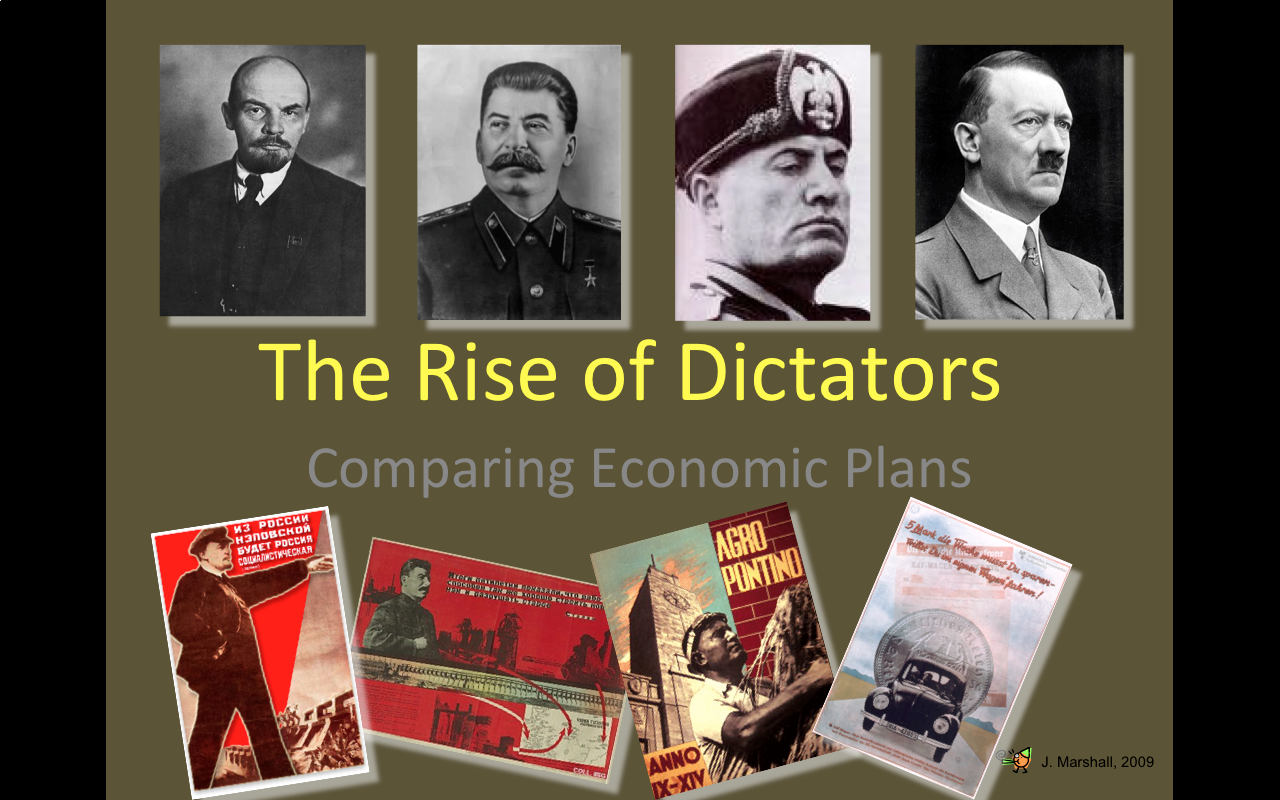We began by debriefing the DeMarco reading: thanks for your input and thoughtful responses. Next, we finished the second half of the USSR vs. Canada study guide. Then we worked on a collaborative study aide:
here is a link to the
Google Doc we used to review the key "what/so-what"s of the unit. I asked that you ensure you follow the format of the example I gave on the first item (including colour choice of the font).
Please ensure you complete your terms quickly: your classmates are counting on you.
I also created the bones of a timeline on the board (after you left) using the SPERM-G acronym:
 |
| Hint: I forgot to add the Treaty of Rapallo (USSR foreign relations) |
 |
| Remember this concerning Stalin's rise to power (from the other day) |
S: society
P: politics
E: economics
R: region or religion (depending on the topic)
M: military
G: geography or government (depending on the topic)
ex: Economics:
a) WW1 economy is unable to keep up
b) under Lenin there is first War Communism (date?)
c) that fails and he takes a step back with the NEP (date?)
d) under Stalin we have the Five-Year Plans and
e) Collectivization. You should be able to explain the reason for each plan and its pros and cons.
As far as the political cartoon and paragraph interpretation, here is an example (
with the parts identified):

(what I see) In the cartoon, I see a caricature of Stalin with his signature moustache and his dictator's uniform with its large epaulettes, pouring "red propaganda" over the eastern hemisphere of the world with the caption "Easter Egg Colouring." (interpretation) His expression indicates he is pleased with himself and while the can is almost empty and thus won't be able to cover the West, there is so much in the East that it is dripping off the plate. There is no date for this source, but we know that Stalin didn't take control of the USSR until after Lenin's death in 1924. (thematic connection to the history) We know that the use of propaganda was key in the dictatorships of the twentieth century. More specifically, Stalin's regime used it to both denounce "enemies of the Revolution" such as Trotsky and to laud "heroes" of the Five-Year Plans, such as Stakhanov. With propaganda, production figures could be exaggerated and failures could be minimalized, all in the name of "painting" the perfect picture while advancing the socialist cause against the evils of capitalism.





































